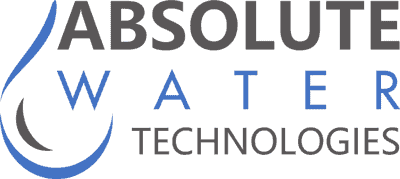Endotoxin Test: Key Methods, Applications, and Benefits Explained
Water quality is crucial for safety in medical and pharmaceutical environments. With over 2 billion people facing unsafe water conditions globally, access to ultra-pure water is vital, especially in hospitals and labs, where it plays a key role in preventing contamination and infection (source: water.org). If bacterial endotoxins contaminate water, it can have devastating consequences for patients.
But how do these industries ensure water purity? They use the Endotoxin Test, a scientific method that detects harmful bacterial endotoxins in water, medical devices, and other products. As the need for safety increases, so does the importance of understanding endotoxin assay methods and their role in maintaining standards.
What Is an Endotoxin Test?
An Endotoxin Test is a diagnostic procedure used to detect bacterial endotoxins, toxic substances found in the outer membrane of Gram-negative bacteria. These endotoxins can trigger severe human reactions, especially when introduced into the bloodstream through contaminated medical devices or water.
Endotoxin testing methods play a critical role in ensuring the safety and efficacy of products used in medical and pharmaceutical industries.
Some primary uses of the Endotoxin Test include:
- Testing for contamination in pharmaceutical products
- Ensuring water used in medical facilities is free of harmful bacterial endotoxins
- Screening medical devices for endotoxin contamination
Key Endotoxin Testing Methods
Several endotoxin testing methods are used in different industries, each designed to ensure accurate detection of bacterial endotoxins. These include:
- The LAL test
- Recombinant Factor C assays
- The monocyte activation test
Each method has its own advantages and specific uses.
LAL Test (Limulus Amebocyte Lysate Test)
This is the most commonly used method for detecting bacterial endotoxins. It involves using an enzyme derived from the blood cells of horseshoe crabs, which reacts with endotoxins to create a detectable response. The LAL test is highly sensitive and is often considered the gold standard in endotoxin assay.
Recombinant Factor C (rFC) Assay
Unlike the LAL test, this method does not rely on animal-derived products. Instead, it uses a synthetic version of the Factor C protein, which is responsible for detecting endotoxins. The rFC assay offers a more sustainable and ethical alternative, with comparable sensitivity to the LAL test.
Monocyte Activation Test (MAT)
This method mimics the human immune response to bacterial endotoxins by measuring the activation of human monocytes. It’s a newer and more specific method but is less commonly used than the LAL test or rFC assay.
Applications of the Endotoxin Test
The Endotoxin Test has applications across various industries, particularly in fields where product purity and safety are essential. Some of the most common applications are included below.
Pharmaceutical Manufacturing
In pharmaceutical settings, any contamination by bacterial endotoxins can compromise product safety. By using endotoxin testing methods, manufacturers ensure that their products, especially injectable drugs and intravenous solutions, are free from harmful endotoxins.
Medical Device Sterilization
Medical devices, such as catheters, stents, and surgical instruments, come into direct contact with human tissue and fluids. Pyrogen testing, particularly through the LAL test, ensures these devices are free of endotoxins that could cause adverse reactions in patients.
Water Testing in Hospitals and Labs
Water purity is crucial in hospitals and laboratories, where contaminated water can lead to dangerous infections or compromise the accuracy of experiments. Many facilities rely on endotoxin assay to test their water systems regularly.
Vaccine Production
In vaccine manufacturing, ensuring that the final product is free of contaminants is essential for patient safety. The Endotoxin Test helps vaccine producers meet regulatory requirements and maintain product safety.
Benefits of Endotoxin Testing
The Endotoxin Test provides important safety measures for industries that require high-purity environments, such as pharmaceuticals and healthcare. Understanding the benefits of endotoxin testing methods can help facilities maintain compliance and protect patient safety.
Ensures Patient Safety
Endotoxin testing methods protect patients from potentially life-threatening reactions caused by contaminated products or devices. The ability to detect even trace amounts of endotoxins significantly reduces the risk of infection or septic shock.
Regulatory Compliance
Regulatory agencies such as the FDA and the European Medicines Agency (EMA) require strict adherence to safety standards, particularly regarding injectable drugs and medical devices. Using the Endotoxin Test ensures facilities meet these standards, avoiding penalties and recalls.
Protects Product Integrity
In pharmaceutical manufacturing, any contamination can ruin entire batches of products. Pyrogen testing helps maintain product integrity, ensuring products reach consumers without harmful contaminants.
Sustainability and Ethical Testing Options
The development of alternatives to the traditional LAL test, such as the rFC assay, provides more sustainable testing methods. These options reduce the reliance on animal-derived products and offer a more ethical approach to endotoxin assay.
Key Insights: Why Endotoxin Testing Is Essential
Understanding the importance of Endotoxin Testing in critical environments like hospitals, pharmaceutical labs, and vaccine production is crucial for maintaining safety standards. The consequences of endotoxin contamination can be severe, ranging from infections to systemic reactions. By using advanced endotoxin testing methods, facilities managers and engineering teams can ensure their processes meet regulatory demands and protect human health.
About Absolute Water Technologies
Absolute Water Technologies provides high-quality water purification systems tailored for medical, pharmaceutical, and laboratory environments. Based in the Midwest, including Columbus and Cincinnati, Ohio, they offer advanced solutions for ensuring water purity and safety, including Endotoxin Testing services.
With a focus on customer satisfaction and industry expertise, Absolute Water Technologies ensures clients receive customized solutions to meet their water quality needs. Their team of professionals provides ongoing support, from system installation to maintenance, guaranteeing reliable, pure water for critical applications in hospitals, labs, and pharmaceutical facilities.
Contact Absolute Water Technologies for Reliable Endotoxin Testing Solutions
In medical and pharmaceutical environments, safety and purity are non-negotiable. Whether it’s ensuring water purity in labs or verifying the sterility of medical devices, the Endotoxin Test plays a crucial role in maintaining high safety standards.
Contact Absolute Water Technologies today to learn more about how they can help with your Endotoxin Testing needs. Their water purification and testing expertise ensures that your systems run efficiently and safely, providing peace of mind for your team and the people you serve.

